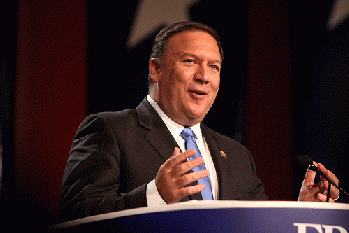This piece was reprinted by OpEd News with permission or license. It may not be reproduced in any form without permission or license from the source.
-(1) an inside leak to WikiLeaks before Julian Assange announced on June 12, 2016, that he had DNC documents and planned to publish them (which he did on July 22) -- the presumed objective being to expose strong DNC bias toward the Clinton candidacy; and
-(2) a separate leak on July 5, 2016, to pre-emptively taint anything WikiLeaks might later publish by "showing" it came from a "Russian hack."
* * *
Mr. President:
This is our first VIPS Memorandum for you, but we have a history of letting U.S. Presidents know when we think our former intelligence colleagues have gotten something important wrong, and why. For example, our first such memorandum, a same-day commentary for President George W. Bush on Colin Powell's U.N. speech on March 5, 2003, warned that the "unintended consequences were likely to be catastrophic," should the U.S. attack Iraq and "justfy" the war on intelligence that we retired intelligence officers could readily see as fraudulent and driven by a war agenda.
Secretary of State Colin Powell addressed the United Nations on Feb. 5. 2003, citing satellite photos which supposedly proved that Iraq had WMD, but the evidence proved bogus.
The January 6 "Intelligence Community Assessment" by "hand-picked" analysts from the FBI, CIA, and NSA seems to fit into the same agenda-driven category. It is largely based on an "assessment," not supported by any apparent evidence, that a shadowy entity with the moniker "Guccifer 2.0" hacked the DNC on behalf of Russian intelligence and gave DNC emails to WikiLeaks.
The recent forensic findings mentioned above have put a huge dent in that assessment and cast serious doubt on the underpinnings of the extraordinarily successful campaign to blame the Russian government for hacking. The pundits and politicians who have led the charge against Russian "meddling" in the U.S. election can be expected to try to cast doubt on the forensic findings, if they ever do bubble up into the mainstream media. But the principles of physics don't lie; and the technical limitations of today's Internet are widely understood. We are prepared to answer any substantive challenges on their merits.
You may wish to ask CIA Director Mike Pompeo what he knows about this. Our own lengthy intelligence community experience suggests that it is possible that neither former CIA Director John Brennan, nor the cyber-warriors who worked for him, have been completely candid with their new director regarding how this all went down.
Copied, Not Hacked
As indicated above, the independent forensic work just completed focused on data copied (not hacked) by a shadowy persona named "Guccifer 2.0." The forensics reflect what seems to have been a desperate effort to "blame the Russians" for publishing highly embarrassing DNC emails three days before the Democratic convention last July. Since the content of the DNC emails reeked of pro-Clinton bias, her campaign saw an overriding need to divert attention from content to provenance -- as in, who "hacked" those DNC emails? The campaign was enthusiastically supported by a compliant "mainstream" media; they are still on a roll.
"The Russians" were the ideal culprit. And, after WikiLeaks editor Julian Assange announced on June 12, 2016, "We have emails related to Hillary Clinton which are pending publication," her campaign had more than a month before the convention to insert its own "forensic facts" and prime the media pump to put the blame on "Russian meddling." Mrs. Clinton's PR chief Jennifer Palmieri has explained how she used golf carts to make the rounds at the convention. She wrote that her "mission was to get the press to focus on something even we found difficult to process: the prospect that Russia had not only hacked and stolen emails from the DNC, but that it had done so to help Donald Trump and hurt Hillary Clinton."
Independent cyber-investigators have now completed the kind of forensic work that the intelligence assessment did not do. Oddly, the "hand-picked" intelligence analysts contented themselves with "assessing" this and "assessing" that. In contrast, the investigators dug deep and came up with verifiable evidence from metadata found in the record of the alleged Russian hack.
(Note: You can view every article as one long page if you sign up as an Advocate Member, or higher).






